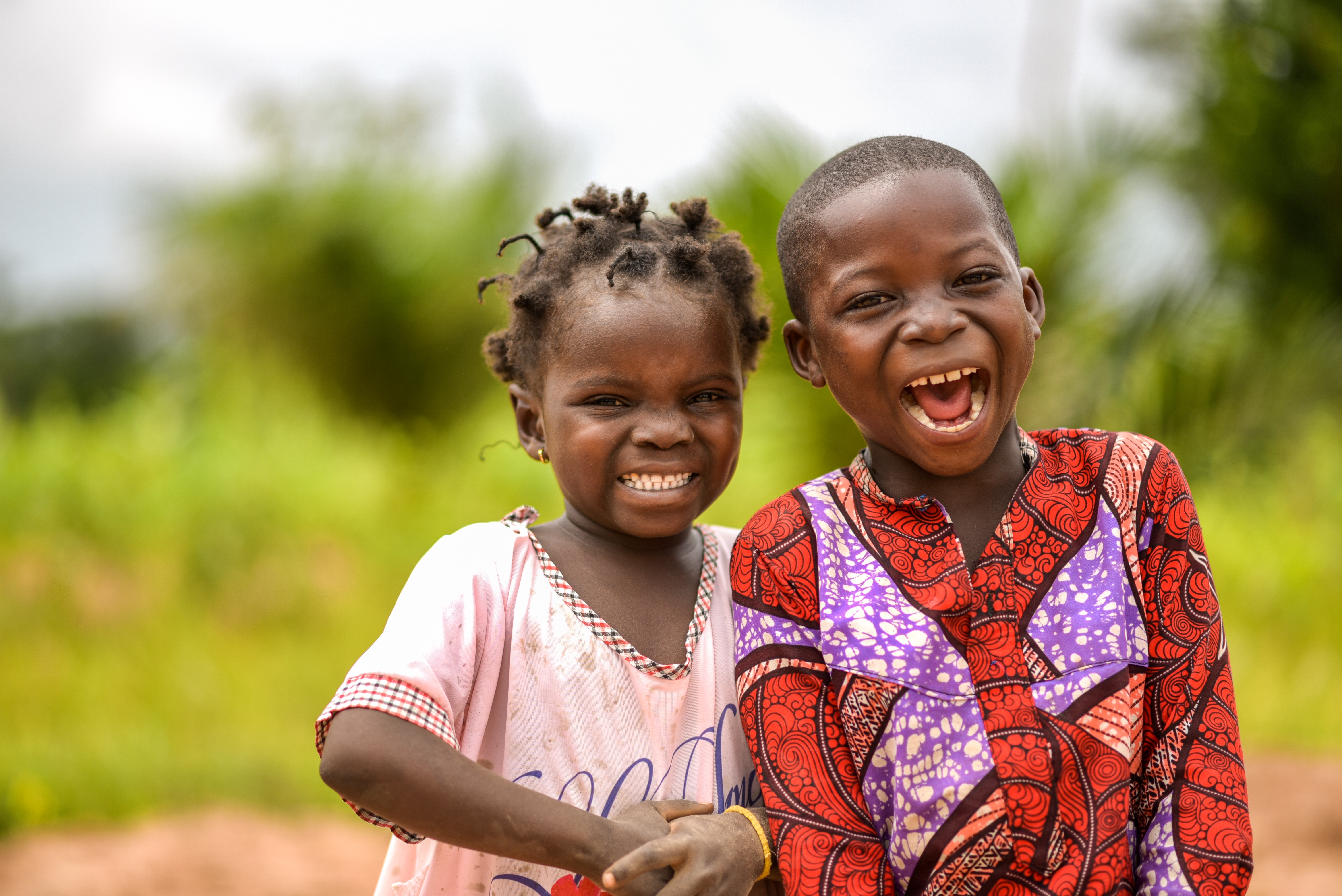The DVF Framework—which stands for Desirability, Viability, and Feasibility—is a strategic model that helps organisations assess and refine their initiatives as they scale. It can help organisations reflect on how well innovations align with user needs (desirability), are financially and operationally sustainable (viability), and can be realistically implemented with available resources (feasibility). By balancing these three elements, education organisations can scale effectively while maintaining quality, impact, and long-term success. GSF has integrated the DVF framework into its Impact at Scale Labs – Early Years in Kenya programme, which helps education organisations scale their innovations effectively.
This case study focuses on how Labs participant Nawirika Foundation scaled their TotoCare Hub Programme by strengthening the desirability of its offerings, acknowledging the diversity of the communities they serve and engaging with them throughout design and implementation.

Introducing the TotoCare Hub Programme
The TotoCare Hub Programme, an initiative by Nawirika Foundation, a Kenyan non-profit, promotes women's economic empowerment and advances early childhood development in low-income Kenyan communities. Nawirika aims to empower caregivers, strengthen the childcare sector, and improve children's lives across East Africa, envisioning quality early childhood care for all. The programme addresses gaps in reliable childcare and the challenges faced by women in low-income areas, who often must choose between earning a livelihood and caring for their children. It does this through two strategic pillars:
- Scaling through Community Centres of Excellence (COEs): A cornerstone of the TotoCare Hub’s social franchising model. Strategically located in accessible areas, COEs will be implemented at three levels - partnering with County Governments, private corporations, and high-performing TotoFounders (Super TotoFounders) - ensuring scalability and impact. These hubs serve as benchmarks for TotoFounder communities, providing training, capacity building, and platforms for innovation, best practice development, and peer-to-peer support. Additionally, COEs function as affordable daycare centres, offering essential childcare services. This model is designed to ensure that the best practices and support are available to those who need it most, creating a network of excellence that can be replicated and scaled across different communities.
- Women’s Economic Empowerment: TotoCare Hub empowers founders of low-cost micro-childcare centres (TotoFounders) with the skills and knowledge to thrive as entrepreneurs and childcare providers. Through comprehensive training in childcare best practices, business management, and financial literacy, TotoCare Hub enables these childcare providers to build and sustain thriving micro-enterprises. Ongoing support and professional development are provided through the COE network, ensuring continued growth. This pillar recognises the crucial role that women play in the childcare sector and aims to provide them with the tools they need to succeed, both as caregivers and as entrepreneurs.
2023: insights from a pilot cohort
Nawirika Foundation believed the first step in establishing a successful intervention was assessing programme desirability within target communities. They piloted the TotoCare Hub Programme with 50 women in early 2023, gaining key insights into programme desirability, community characteristics, and needs. Specifically, they explored:
Who is the programme for? The initial cohort included caregivers regardless of childcare centre ownership. Low transition rates from childcare practices training to entrepreneurship training led to a shift in targeting caregivers already providing childcare services. This highlighted the importance of a targeted approach, ensuring that the programme's content and delivery are relevant to the participants' specific needs and circumstances.
What do they need to learn? Initial curriculum focused on children's school preparedness. Caregiver feedback highlighted gaps in responsive care, play-based learning, and safety. Subsequent cohorts used a Nurturing Care Framework (NCF) curriculum, making it more relevant. This adaptation underscores the need for continuous feedback and adjustment, ensuring that the curriculum remains aligned with the needs of the community.
How can we design and provide intervention to meet their needs?
- Format and structure of the training: Initial twice-weekly, six-week sessions disrupted business operations. A three-day boot camp and two-day on-site practicum provided greater flexibility. This change demonstrates the importance of considering the practical constraints faced by participants, such as time and travel.
- Language of delivery: A mix of English and Swahili improved clarity and inclusivity. Overly technical language was simplified for better comprehension. This highlights the need for clear and accessible communication, ensuring that all participants can fully engage with and benefit from the programme.
- Asking foundational questions and starting with the basics allows organisations to understand their communities deeply and tailor interventions accordingly, ensuring programme appropriateness and desirability. This iterative process of learning and adaptation is essential for creating effective and sustainable interventions.
2024: Desirability assessment and data-driven decision-making
Upon joining the Impact at Scale Labs, Nawirika onboarded additional cohorts to refine their model. Testing ensured scalable solutions were desirable. The TotoCare Hub team assessed caregiver knowledge retention, curriculum improvements, and content delivery methods.
Laterite collaborated on a study to understand children's and caregivers' needs, initially administered to 43 caregivers in Nairobi and Kitui, and later expanded to 15 in Nakuru. Key insights included:
- Caregivers' financial stability: 65% of Nairobi and Kitui caregivers earned below the minimum wage. Entrepreneurship training and social franchise network membership aimed to improve financial management and access to credit. This addresses a critical need, as financial stability is essential for the sustainability of childcare services.
- Caregivers’ personal agency: Tailored training and support built self-confidence, enhancing personal and professional growth. Ongoing training was deemed essential. This recognition of the importance of personal agency highlights the holistic approach of the programme, which aims to empower women in all aspects of their lives.
- Quality of childcare services: Gaps in essential knowledge, skills, and materials were identified. Training and starter kits addressed these deficiencies. This focus on quality ensures that children receive the best possible care, leading to improved developmental outcomes.
- Provision of a safe and conducive environment: 94% of caregivers lacked child safety and wellness training. Business starter kits with safety and nutrition equipment addressed this. This emphasis on safety and well-being underscores the programme's commitment to creating nurturing environments for children.
Looking ahead: next steps for the TotoCare programme
The team is refining and scaling its programme for maximum reach, impact, and sustainability. This requires thoughtful attention to the desirability of the intervention and its fit across various communities. A flexible, hybrid training model combining in-person and EdTech solutions is being implemented. Partnerships with county governments, development organisations, and the private sector are being expanded. These improvements ensure the programme is responsive to caregivers' needs and effectively addresses gaps.
About
The Impact at Scale Labs by the Global Schools Forum (GSF) supports organisations with promising education solutions to test, adapt, and scale their impact. The Labs provide flexible funding, evidence-based iterative learning approaches, stakeholder engagement opportunities, and scaling support through the GSF network. Laterite, a data, research and analytics firm specialising in social impact, was engaged by GSF to provide monitoring and evaluation (M&E) technical support to Lab grantees.
Laterite’s expertise includes quantitative and qualitative data collection, research and evaluation design, and capacity building throughout the M&E cycle.
Laterite supported the Nawirika Foundation in designing and implementing a testing study of their TotoCare Hub programme. This included identifying testing areas, developing methodologies, creating tools and sampling frameworks, monitoring and cleaning data, conducting analyses, and interpreting findings to refine the solution for greater impact.

